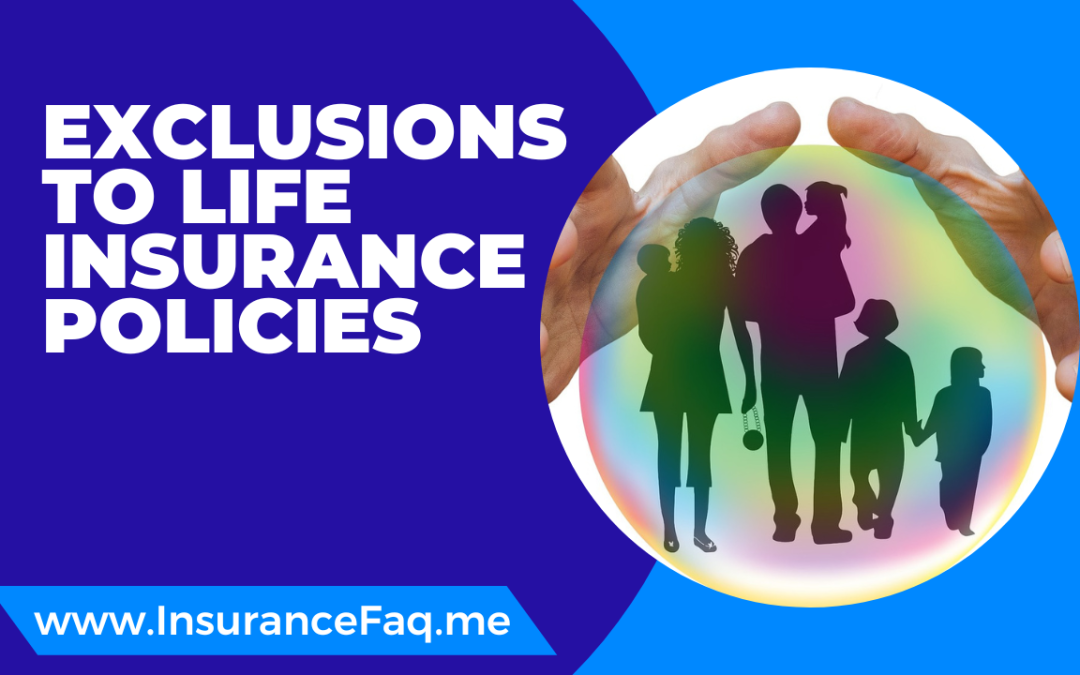Life insurance policy exclusions are specific circumstances or events that are not covered by a life insurance policy. It is important to carefully review the exclusions of a policy before purchasing it to ensure that you understand what is and is not covered. Some common policy exclusions include:
- Suicide: Many life insurance policies exclude coverage in the event of suicide during the first year or two of the policy. After this period, suicide is typically covered like any other cause of death.
- War or military service: Some policies exclude coverage for deaths resulting from war or military service.
- Dangerous activities: Some policies exclude coverage for deaths resulting from dangerous activities, such as skydiving or bungee jumping.
- Pre-existing medical conditions: Some policies exclude coverage for deaths resulting from pre-existing medical conditions that were not disclosed at the time the policy was purchased.
To add coverage for exclusions or events not covered by your policy, you may be able to purchase additional riders. Riders are optional endorsements that can be added to a life insurance policy to provide additional coverage or benefits. Some common riders include accidental death coverage, long-term care coverage, and children’s coverage.
It is important to carefully review the exclusions and limitations of a policy and consider whether you need additional coverage or benefits. You can discuss your coverage needs and options with your insurance agent or financial advisor to determine whether purchasing additional riders is appropriate for your situation.


